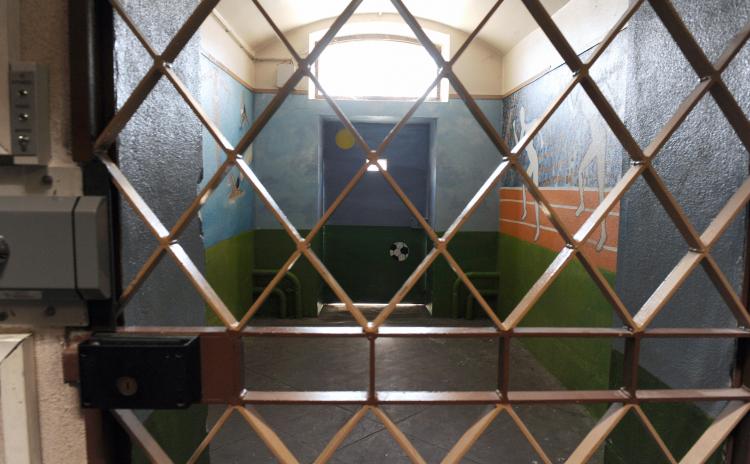PARIS—Facing a second year of a suicide rate increase in French prisons, Justice Minister Michele Alliot-Marie advocated new measures that critics say only tackle the symptoms and not the root causes of suicides among detainees. These measures include the use of paper pajamas and towels in prisons.
Since January this year, 90 prisoners have committed suicide, according to estimates from the International Prisons Observer. The most recent suicide took place on Monday August 17—one day before Alliot-Marie announced new preventive guidelines. A 37-year-old convict hung himself in the Marseille prison of Les Baumettes.
This means there is “one suicide or suspect death every three days in prison, seven times more than in free environments,” said Le Ban Public, an NGO that works for a better quality of life in prisons.
The high suicide numbers in 2008 (115 suicides, compared to 90 to 95 per year in 2006 and 2007) triggered Justice Minister Rachida Dati to appoint Dr. Louis Albrand, a renowned psychiatrist, to analyze this situation and give recommendations to the government.
In April, Dr. Albrand refused to formally present his report to the government, saying that the prison administration edited and downplayed the problem.
However, ministry representatives were quoted in Le Monde newspaper as saying that current Minister Alliot-Marie would “be willing to apply the twenty recommendations of Albrand’s [report].”
“Suicide in prison is a reality and I wish to show transparency on the subject,” said Alliot-Marie during a visit to Orleans, north-central France, asserting that the subject “is neither a taboo, nor a subject of sterile polemics.”
Among the recommendations put forward in the report is the creation of “security kits,” which include paper pajamas and towels, as well as new bedcovers so that prisoners will not be able to use them to hang themselves.
“A good start, but we will need more,” commented Dr. Albrand to the Associated Press, qualifying security kits as “mere gadgets.”
His report emphasizes the need for smaller, “human-size” prisons, as well as better training of prison guards and employees, to be able to detect prisoners at risk of attempting to take their own lives.
The Minister announced that from this fall onwards, such training should start, as well as a benchmark program to apply European practices such as the so-called “Support Prisoners,” a program which focuses on the coaching of newly arrived or at-risk detainees.
The International Prisons Observer, however, is doubtful of the results and says that the new policies are “driving its logic to the point of absurdity… The Minister is turning her back to the doctrine that explains that ‘a prevention policy is fair and efficient only if it attempts – not to force a prisoner not to die – but to restore him as an actor of his own life.’”
Since January this year, 90 prisoners have committed suicide, according to estimates from the International Prisons Observer. The most recent suicide took place on Monday August 17—one day before Alliot-Marie announced new preventive guidelines. A 37-year-old convict hung himself in the Marseille prison of Les Baumettes.
This means there is “one suicide or suspect death every three days in prison, seven times more than in free environments,” said Le Ban Public, an NGO that works for a better quality of life in prisons.
The high suicide numbers in 2008 (115 suicides, compared to 90 to 95 per year in 2006 and 2007) triggered Justice Minister Rachida Dati to appoint Dr. Louis Albrand, a renowned psychiatrist, to analyze this situation and give recommendations to the government.
In April, Dr. Albrand refused to formally present his report to the government, saying that the prison administration edited and downplayed the problem.
However, ministry representatives were quoted in Le Monde newspaper as saying that current Minister Alliot-Marie would “be willing to apply the twenty recommendations of Albrand’s [report].”
“Suicide in prison is a reality and I wish to show transparency on the subject,” said Alliot-Marie during a visit to Orleans, north-central France, asserting that the subject “is neither a taboo, nor a subject of sterile polemics.”
Among the recommendations put forward in the report is the creation of “security kits,” which include paper pajamas and towels, as well as new bedcovers so that prisoners will not be able to use them to hang themselves.
“A good start, but we will need more,” commented Dr. Albrand to the Associated Press, qualifying security kits as “mere gadgets.”
His report emphasizes the need for smaller, “human-size” prisons, as well as better training of prison guards and employees, to be able to detect prisoners at risk of attempting to take their own lives.
The Minister announced that from this fall onwards, such training should start, as well as a benchmark program to apply European practices such as the so-called “Support Prisoners,” a program which focuses on the coaching of newly arrived or at-risk detainees.
The International Prisons Observer, however, is doubtful of the results and says that the new policies are “driving its logic to the point of absurdity… The Minister is turning her back to the doctrine that explains that ‘a prevention policy is fair and efficient only if it attempts – not to force a prisoner not to die – but to restore him as an actor of his own life.’”







